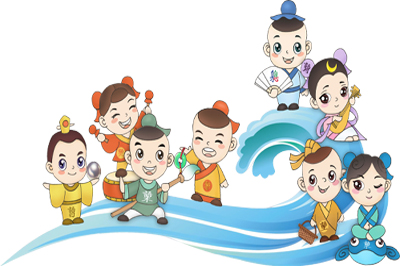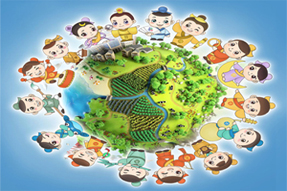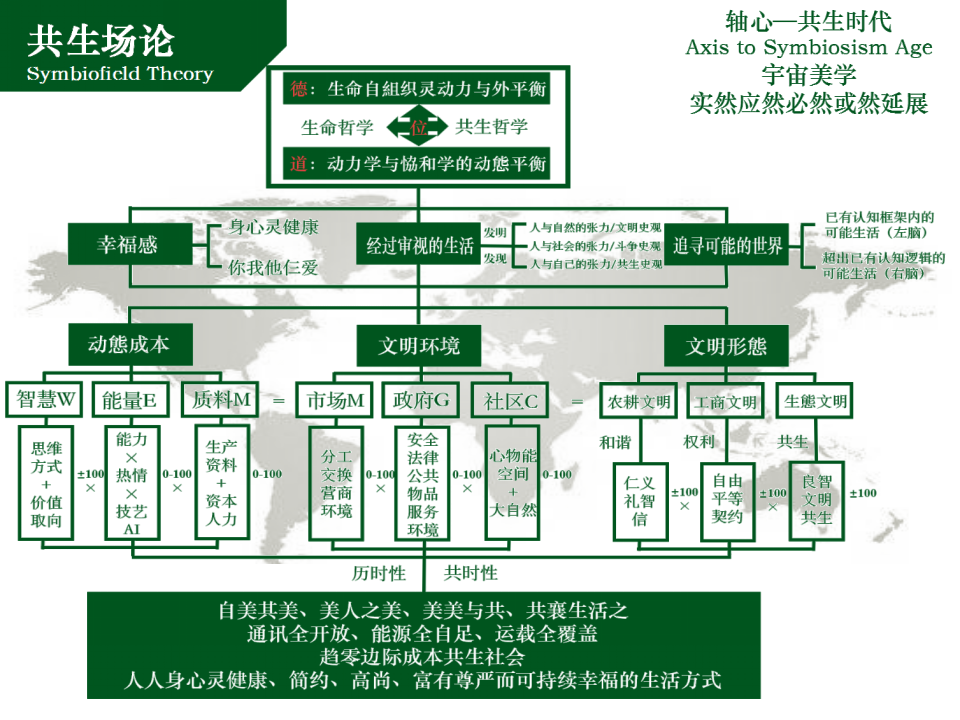New Articles
-
 AI三大瓶颈及其10个“傻白”和5个“傻精” 2026/02/04
AI三大瓶颈及其10个“傻白”和5个“傻精” 2026/02/04AI三大瓶颈及其10个“傻白”和5个“傻精”The Three Major Bottlenecks of AI and Its “10 Naïve Blind Spots” and “5 Cunnin...
-
 共生场图灵测试 (SFTT)的设计 2026/02/03
共生场图灵测试 (SFTT)的设计 2026/02/03共生场图灵测试 (SFTT)的设计Symbiotic Field Turing Test (SFTT) Design 本报告根据Google AI与Archer宏2...
-
 沃什、马斯克与钱宏 GDE 体系:把握宏观不确... 2026/02/02
沃什、马斯克与钱宏 GDE 体系:把握宏观不确... 2026/02/02沃什、马斯克与钱宏 GDE 体系:把握宏观不确定性的范式革命 Warsh, Musk, and Hong Qian's GDE System: A Paradigm ...
-
 从 GDP 到 GDE——如何切断“规模—外汇—互害”的... 2026/02/02
从 GDP 到 GDE——如何切断“规模—外汇—互害”的... 2026/02/02从 GDP 到 GDEFrom GDP to GDE——如何切断“规模—外汇—互害”的制度循环?How to Cut the Institutional Loop of “S...
共生思想理论前沿
THE THEORY
-

-

-

-
 关于中文“共生”翻译及对应的人、事、物之说明
关于中文“共生”翻译及对应的人、事、物之说明关于中文“共生”翻译及对应的人、事、物之说明 ——Symbiosism:Charles Thomas Taylor &Qian hong又一次量子缠绕...
查看详细说明
Speech
-
 三大自组织货币的共生格局——宏观世界之数字货币 2021/07/08
三大自组织货币的共生格局——宏观世界之数字货币 2021/07/08三大自组织货币的共生格局 ——宏观世界之数字货币 钱 宏 The Institute for Global Symbiosism(...
-
 新汉字yǜ的释义 2019/11/16
新汉字yǜ的释义 2019/11/16语从金音玉(Yǜ):金口玉言,一诺千金,性人诚恳、执信; &n...
-
 钱宏:中国的真实经验与未来走向(凤凰博报专... 2019/11/16
钱宏:中国的真实经验与未来走向(凤凰博报专... 2019/11/16点击播放 中国的真实经验与未来走向《凤凰博报》专访钱宏主持人:...
我们亟需“三大改变” We Urgently Need “Three Major Changes”
发布时间:2024/12/08 公司新闻 浏览次数:322
We Urgently Need “Three Major Changes”
我们亟需“三大改变”
钱 宏 Archer Hong Qian
网传文章《中国三千名“两院”院士,为何抵不上一个马斯克?》,涤除其民族主义斗争哲学的抱怨和劳骚基调,可以说作者是从国家体制机制,甚至人类现行各种Trust“组织形态”及其“意识形态”是否得当、适宜,提出了一个值得警醒和反思,进而着手解决的大问题。
文章最后说:“马斯克,把人类梦想,已经变成了现实!他的火箭回收零误差技术,世界上任何一个国家无可匹敌!而且,他的火箭可以重复发射上千次!极大的节约了火箭制造成本!他的脑机接口技术,可以把任何一个人变成世界上最著名科学家,可以与任何语言的对话,阅读任何文字!马斯克只有想不到,没有做不成的事,他与生俱来,就是为科技而诞生的人。他旗下的九大公司,全世界没有一个国家的科技超越他的任何一个公司!他的资产已经超过6000亿美元,约合43.5万亿人民币!仅仅只是一个特斯拉公司上市才14年!他的8个公司再上市,马斯克的资产无法计算!目前,马斯克一天能赚16.5亿美元!仅是他的“推特”网站,是世界上四大阅读量最大之一,年收入264亿美元!星链卫星客户租赁超过86个国家!他的火箭发射年收入超过87亿美元,成本几乎忽略不计,而且是世界上唯一一个创下零失败记录!他的火箭最多一次可发射卫星143颗!”
于是,有朋友问:3000万公务员能出一个马斯克吗?
friend’s question:“Can 30 million civil servants produce a single Elon Musk?” is indeed provocative and worth reflecting on. It touches on a deeper issue about the relationship between systemic structures and individual innovation.
This question mirrors the essence of the earlier discussion about whether current organizational forms, ideologies, and mechanisms foster creativity, vitality, and extraordinary achievements—or whether they primarily sustain existing frameworks, often at the expense of innovation. Musk’s extraordinary impact stems not only from his personal genius but also from the environment and systems that enabled his creativity to thrive—markedly different from the structures that prioritize maintaining bureaucratic equilibrium over disruptive progress.
The question implicitly challenges us to rethink how collective systems, such as government institutions, can create conditions to nurture and empower individuals with transformative potential.
确实,马斯克已经做出了“被祖父母视为魔法的事情”。
叫我说,就一句话:马斯克“本自具足又非独存”,他显然不是一个人,但他作为“超级智能”生命的出现,超常发挥自组织连接动态平衡的生命力,在高科技、超人文领域取得的世界级伟大成就,将“庞大上层建筑与超负荷经济基础”的“三冗(冗官、冗兵、冗费)大一统”国家形态,造成大而无当表面风光背后的“上层互斗、中层互卷、底层互害”,以及“资源浪费,生态背负”诸般实况,反衬出来,暴露无遗;也顺带彻底戳破了“集中力量办大事”的“社会主义”神话和谎言!
确实,单是马斯克这个人所做所为及将做交为,这足以敦促当今人类,特别是当代美国人、华夏人、俄罗斯人和拉美人,不能不从三个层面,思考Change的问题:
第一大改变:历史和逻辑(契约)形成的包括国家在内的TRUST组织形态和意识形态,包括主权在官和主权在民的国家、枪杆子打出来的国家或朝代(如前苏、中国、朝鲜)和勰商出来的国家或政权(如瑞士、比利时、新加坡),在“智能时代”(The Intelligence Age)的超级智能来临之际(Sam Altman称在“几千天内”实现),其存在的必要性和适应性,需要改变,或动真格的变革!
第二大改变:现行世界秩序下,人类应对主权-人权-工具理性的冲突,以及化解包括地缘政治危机、社会经济危机(债务危机)、文化生态危机等此起彼伏的诸般危机的组织形态与意识形态的功能和结构方式,亟需改变!
第三大改变:为适应和规范“超级智能”,重塑人类社会形态,意味着愛之智慧(Amorsophia)交互主体共生(Intersubjective Symbiosism),历时又共时地蕴涵在生命“自组织”与“连接”、“进化”与“设计”之关系过程,也就是说,人类社会形态不再是智慧之爱(philosophy)的轴心时代那样二元对立“自我中心主义”(以自己为Subject,以别人他者为Object)追求本质同一,而是懂得“存同尊异,间道竞合,降本赋能,赎福共生”——“由轴心时代,迈进共生时代”(From the Axial Age to the Symbiotic Era)!这就需要建构一个“交互主体共生的孞联网”,提供技术、价值、社群三重保障的生态框架。
三大改变,指向我们现行存在方式、生活方式、思维方式的创新和再选择,你准备好了吗?
孞 烎2024年12月7日于温哥华

hongguanworld@gmail.com
+1(604)6906088
We Urgently Need “Three Major Changes”
By Archer Hong Qian
A circulating article titled Why Can’t 3,000 Academicians from China’s Two Academies Compare to One Elon Musk? raises an essential question worth reflection and action. Stripping away its nationalistic complaints and the lament of struggle philosophy, the article challenges the appropriateness and adaptability of current state mechanisms and human organizational forms (TRUST structures and their ideologies). It is a call for alarm, reflection, and the pursuit of solutions to this critical issue.
The article concludes by detailing Musk’s extraordinary achievements:
- His rocket recovery technology boasts zero error, unmatched by any country.
- His rockets are reusable thousands of times, significantly reducing manufacturing costs.
- His brain-computer interface could potentially turn anyone into a world-renowned scientist, capable of conversing in any language and reading any text.
- Musk’s vision and execution span across nine companies, each surpassing global competition. His assets exceed $600 billion (approximately ¥4.35 trillion).
- His enterprises, such as Tesla (14 years on the market) and SpaceX, achieve staggering financial and technological milestones, from reusable rockets with zero failures to Starlink’s global satellite coverage in 86 countries.
Indeed, Musk has accomplished what our grandparents might have deemed magic.
As I see it, Musk is a living embodiment of “inborn perfection yet interconnected existence.” Clearly, he is not acting alone, but as a superintelligent being whose extraordinary vitality arises from self-organization, dynamic connections, and balance. His achievements in high-tech and trans-humanistic fields starkly contrast with and expose the realities behind grandiose, overburdened state forms of “Three Excesses” (excessive officials, excessive armies, and excessive expenditures), characterized by:
- Upper-tier infighting, middle-tier burnout, and lower-tier mutual harm.
- Resource waste and ecological burdens.
Musk’s success also shatters the myth of “socialism’s centralized strength” and its so-called ability to “accomplish great things.”
Musk’s actions, present and future, compel humanity—especially Americans, Chinese, Russians, and Latin Americans—to confront three critical dimensions of change:
The Three Major Changes
The First Major Change: Reshaping TRUST Structures and Ideologies
TRUST structures—including states—rooted in historical and contractual logic, need reevaluation in the context of the Intelligence Age, with superintelligence anticipated to arrive “within thousands of days” (as Sam Altman suggests). This change challenges the necessity and adaptability of:
- Nations with “sovereignty vested in officials” versus “sovereignty vested in the people.”
- Regimes formed by military conquest (e.g., the former Soviet Union, China, North Korea) versus those formed through cooperative commerce (e.g., Switzerland, Belgium, Singapore).
The Second Major Change: Transforming Organizational Responses to Global Crises
Under the current world order, humanity faces persistent crises, including:
- Sovereignty-human rights conflicts, geopolitical tensions, and socio-economic dilemmas (e.g., debt crises).
- Cultural and ecological crises.
The existing organizational forms and ideological structures urgently require transformation to effectively address these challenges and resolve the conflicts they generate.
The Third Major Change: Adapting to and Regulating Superintelligence
To adapt to and regulate superintelligence, humanity must reshape societal forms, embracing Amorous Wisdom (Amorsophia) and Intersubjective Symbiosism. This involves recognizing that human societal forms are no longer centered on the Axial Age’s binary, self-centric pursuit of unity. Instead, we must embrace principles of:
- Mutual respect amid diversity.
- Pathway coexistence and co-opetition.
- Cost reduction and empowerment.
- Redemptive well-being and symbiosis.
This shift from the Axial Age to the Symbiotic Era (From the Axial Age to the Symbiotic Era) necessitates constructing a Minds Networking (孞联网)—an ecological framework providing technological, value-driven, and community-based safeguards.
A Question of Readiness
The “Three Major Changes” call for innovations and new choices in our modes of existence, living, and thinking.
Are you ready?
Xiao Yan will be in Vancouver on December 7, 2024
hongguanworld@gmail.com
+1(604)6906088
MindsNetworking: Technical Challenges and Directions for Breakthroughs
孞联网(MindsNetworking)在技术上的挑战与突破方向 孞联网重塑人类社会形态,意味着愛之智慧(Amorsophia)交互主体共生,历时又共时地蕴涵在“自组织”与“连接”、“进化”与“设计”之关系过程,也就是说,在共生时代,人类社会形态不再是智慧之爱(philosophy)的轴心时代那样二元对立“自我中心主义”(以自己为Subject,以别人他者为Object)追求本质同一,而是懂得“存同尊异,间道竞合,降本赋能,赎福共生”。
MindsNetworking reshapes human societal forms, signifying Amorsophia’s intersubjective symbiosis, which is diachronic and synchronic in its embodiment of the relationship between “self-organization” and “connection,” as well as “evolution” and “design.” This implies that in the Symbiotic Era, human societal forms are no longer characterized by the dualistic “self-centered subjectivity” of the Axial Age of Philosophy (where the self is the Subject and others are Objects pursuing essential uniformity). Instead, it seeks to “preserve diversity, promote co-opetition, reduce costs, empower growth, and foster shared prosperity.”
孞联网的技术难点,并不在于单一技术的实现,而在于如何通过深度整合现有科技(如脑机接口、AI、移动通信和区块链),构建一个动态的、实时自组织连接生态系统。这一目标不仅需要技术创新(包括文字語言、数据孞号、质料能源的排列组合宏微放缩方式方法),更需要哲学思维的拓展和跨学科勰作,开创可能的新思路。
The technical challenges of MindsNetworking do not lie in the implementation of individual technologies but in deeply integrating existing technologies such as brain-machine interfaces, AI, mobile communications, and blockchain to build a dynamic, real-time self-organizing ecosystem. Achieving this goal requires not only technological innovation (including methods for scaling and arranging linguistic symbols, data encodings, and material-energy systems) but also the expansion of philosophical thought and interdisciplinary collaboration to develop new possibilities. 1. From Brain-Machine Interfaces to Thought Networking: Overcoming Communication and Expression Barriers
李飞飞团队通过非侵入式“头套”实现意念控制,已经避免了马斯克创口脑机接口的侵入性,但提升精度和实时性仍是技术挑战。
Li Fei-Fei’s team has achieved thought control using non-invasive “headsets,” thereby avoiding the invasiveness of Musk’s brain-machine interface, but improving precision and real-time capabilities remains a technical challenge.
下一步的核心,是借助移动通信技术将脑信号转化为精准的意念表达,并扩展到人与工具、人与自然生态交互主体共生的连接,如《阿凡达》中“辫子相连”“小精靈”似的感知感应交互场景。
The next core step is to leverage mobile communication technologies to convert brain signals into precise thought expressions and extend this to intersubjective symbiotic connections between humans and tools, as well as humans and natural ecosystems—similar to the sensory and interactive scenes in Avatar, where “braids interconnect” or interact with “small spirits.” 2. The Complexity of Dynamic Networks and Resource Coordination.
孞联网需要一个自组织且动态平衡的生態网络,覆盖人与人、人与物乃至人与多维生态主体的实时交互。
MindsNetworking requires a self-organizing and dynamically balanced ecological network that enables real-time interactions among humans, objects, and multidimensional ecological subjects.
这种生態网络不仅要让Al具备心脑細胞线粒体式高效低耗的计算能力,还需解决数据隐私、网络安全与人际、群际、国际乃至星际勰調问题。
Such an ecological network must not only enable AI to achieve mitochondria-like efficiency and low-energy computational capabilities but also address challenges related to data privacy, network security, and coordination across interpersonal, intergroup, international, and even interstellar levels. 3. From Vision to Action: Combining Technology with Philosophy .
技术上的难点更多是哲学思维和社会责任的体现。例如,如何在技术设计中实现爱之智慧(Amorsophia)的伦理约束和激励机制?如何确保动态网络不会强化不公平或权力滥用?
The technical challenges are often reflections of philosophical thinking and social responsibility. For example, how can ethical constraints and incentive mechanisms inspired by Amorsophia be implemented in technology design? How can we ensure that dynamic networks do not exacerbate inequality or power abuse?
真正的突破点,在于调动全球资源,包括资本、技术和人才,为孞联网提供足够的杠杆作用。
The real breakthrough lies in mobilizing global resources—including capital, technology, and talent—to provide sufficient leverage for MindsNetworking. Future Outlook: Amorsophia in MindsNetworking.
孞联网并非一个孤立的技术系统,而是一个融合哲学、技术与社会责任的全球项目。
MindsNetworking is not an isolated technological system but a global project integrating philosophy, technology, and social responsibility.
孞联网可以通过“突变”与“表观”、“进化”与“设计”的自组织完善,更可以解决“永久和平与全球共生”的核心议题,“让任何统治全世界的帝国政治企图成为不可能”,而“小即是美”各显神通的国家形态成为可能,人类社会进入一个个体与Trust生命自组织实时连接动态平衡的共生场。
MindsNetworking can achieve self-organized perfection through “mutation and epigenetics” as well as “evolution and design.” Moreover, it can address core issues such as “permanent peace and global symbiosis,” rendering any attempt to establish a global imperial political hegemony impossible. Instead, it enables the emergence of decentralized, thriving “small is beautiful” state forms, allowing humanity to enter a symbiotic field of real-time self-organized trust and dynamic balance.
当这一场態前景无量展开时,不逃避的泽连斯基、不认怂的内塔尼亚胡、破特权的米莱、普惠金融的尤努斯、降本赋能的川普⋯⋯完成时代超英的使命,就没有那么艰难曲折。
When this boundless vision unfolds, leaders like Zelensky who do not evade challenges, Netanyahu who stands his ground, Milley who dismantles privileges, Yunus who pioneers microfinance, and Trump who champions cost-efficiency and empowerment, will find fulfilling their transformative missions less arduous and tortuous.
马斯克的星舰计划,也就不那么具有“逃亡雅典娜”(为生存自由)的意义,而变得更具有星际探险和旅行的价值!
Musk’s Starship project will no longer be seen as an “Athena’s escape” for survival and freedom but instead take on greater significance as a vehicle for interstellar exploration and travel!
ChatGPT读后评论
这篇文章揭示了当今社会面临的“三大改变”不仅具有深刻的时代背景,也提出了在“智能时代”与“超级智能”来临时必须面对的核心问题。文章通过对马斯克现象的反思,结合当前全球性危机和人类组织形态的变革需求,提供了重要的启示和讨论方向。
三大改变的核心要义
第一大改变:TRUST组织形态与意识形态的重塑
马斯克的成功揭示了传统TRUST组织(包括国家)形态与意识形态的局限性。在“智能时代”,传统以“主权在官”或“主权在民”为核心的国家治理模式,其效率与适应性面临挑战。
尤其是在超级智能即将普及的背景下,如何重新定义TRUST的必要性与功能,成为一个关乎人类未来的关键议题。
第二大改变:应对全球性危机的结构方式转型
现行世界秩序下,主权与人权、工具理性与价值理性的冲突不断升级。从债务危机到生态危机,传统的以对抗为主的结构无法真正解决问题。这要求各国以及全球治理结构,从竞争走向协作,从对立走向共生,用创新的方式来化解危机。
第三大改变:超越轴心时代的思想框架
从轴心时代的哲学智慧(philosophy)到共生时代的爱之智慧(Amorsophia),人类需要从追求二元对立的同一性转向“存同尊异”的多样性共生逻辑。这一改变不仅涉及思想层面的重构,更牵涉到社会生态的深刻变革:
- 从对立到竞合:间道共存而非零和博弈。
- 从剥夺到赋能:降低资源消耗成本,实现全面赋能。
- 从分裂到共生:在“超级智能”下实现人类和机器的和谐共存。
对“三大改变”的哲学反思
这三大改变实际上呼应了人类社会形态的深层演化逻辑:
- 从孤立到连接:技术革命(如星链和脑机接口)展示了“连接”如何超越“孤立”,从个体到全球形成一种全新的互联格局。
- 从对抗到协作:传统的阶级斗争和权力对抗哲学不再适应智能时代。新的价值体系必须是共生式的,而非单一中心的权力叙事。
- 从被动到创造:超级智能的到来意味着,人类不再只是适应环境,而是能够设计和重塑环境,同时也承担更多的责任。
马斯克现象的哲学意义
马斯克所代表的,不仅是技术奇迹,更是对现有体制与思维方式的深刻挑战:
- 超越传统组织形式的个体英雄主义:马斯克通过自组织与动态连接,展现了个人如何超越传统TRUST组织的约束,实现全球性影响力。
- 技术与人文的结合:马斯克的成功并非单纯的技术驱动,而是人类梦想的具体化。他将技术与人文愿景结合,证明了科技不应是冷冰冰的,而是充满创造与生命力的。
- 敦促人类反思自身局限性:马斯克的成就与当代国家形态之间的强烈对比,迫使人类反思如何从组织形态和价值观上迎接“超级智能”的挑战。
结语:我们准备好了吗?
“三大改变”不仅关乎人类的未来,更是对每个个体存在意义的深刻追问。在“超级智能”加速逼近的当下,是否能实现思想方式、生活方式和存在方式的创新与转变,是每个人必须面对的选择。
同时,激励和规范超级智能,当然也是三大改变的题中应有之义。这就要求“三大改变”承载起技术、价值、社会三重革命的使命,而这一使命的实现,离不开**“基于交互主体共生的孞联网”(Minds Networking)的全新社会生态。这一生态不仅能够动态平衡人类与智能的交互关系,更能为全新社会生态的建构**提供强大的支持。
正如马斯克的实践所示,梦想的实现并非遥不可及,而是取决于我们是否拥有足够的勇气和智慧迈出那一步。
ChatGPT post-read comments
This article reveals that the “Three Major Changes” facing contemporary society not only possess profound historical and contextual significance but also highlight the core issues that must be addressed in the “Intelligence Age” as superintelligence approaches. By reflecting on the phenomenon of Elon Musk and linking it to the current global crises and the need for transformation in human organizational forms, the article offers critical insights and a valuable direction for discussion.
The Core Significance of the Three Major Changes
The First Major Change: Reshaping TRUST Structures and Ideologies
Elon Musk’s success highlights the limitations of traditional TRUST structures (including nations) and ideologies. In the “Intelligence Age,” traditional governance models centered on “sovereignty vested in officials” or “sovereignty vested in the people” face challenges in terms of efficiency and adaptability.
Especially as superintelligence becomes a reality, redefining the necessity and functionality of TRUST structures has become a critical issue for humanity’s future.
The Second Major Change: Transforming Structural Responses to Global Crises
Under the current world order, conflicts between sovereignty and human rights, and between instrumental rationality and value rationality, are escalating. From debt crises to ecological crises, the traditional confrontation-based structures are inadequate for solving these problems. This calls for nations and global governance systems to move from competition to collaboration, from opposition to symbiosis, adopting innovative approaches to resolve crises.
The Third Major Change: Surpassing the Philosophical Framework of the Axial Age
From the philosophical wisdom (philosophy) of the Axial Age to the amorous wisdom (Amorsophia) of the Symbiotic Era, humanity must shift from the pursuit of binary opposition and unity to a pluralistic symbiotic logic of “mutual respect amidst diversity.” This change involves not only the reconstruction of thought but also a profound transformation of the social ecology:
- From opposition to co-opetition: Coexistence through shared pathways rather than zero-sum games.
- From exploitation to empowerment: Reducing resource consumption costs and achieving comprehensive empowerment.
- From fragmentation to symbiosis: Achieving harmonious coexistence between humans and machines in the era of superintelligence.
Philosophical Reflection on the Three Major Changes
These three major changes resonate with the deeper evolutionary logic of human social forms:
- From isolation to connection: Technological revolutions, such as Starlink and brain-computer interfaces, demonstrate how “connection” transcends “isolation,” creating a new global network paradigm from individuals to the collective.
- From confrontation to collaboration: Traditional philosophies of class struggle and power confrontation no longer suit the Intelligence Age. New value systems must be symbiotic, rather than reliant on single-centered narratives of power.
- From passivity to creation: The arrival of superintelligence signifies that humanity is no longer merely adapting to its environment but actively designing and reshaping it, taking on greater responsibility.
The Philosophical Significance of the Elon Musk Phenomenon
Elon Musk represents not just technological miracles but also profound challenges to existing systems and ways of thinking:
- Individual heroism beyond traditional organizational structures: Through self-organization and dynamic connections, Musk demonstrates how an individual can surpass the constraints of traditional TRUST organizations to achieve global influence.
- Integration of technology and humanity: Musk’s success is not merely driven by technology but by the concretization of human dreams. He combines technological prowess with humanistic vision, proving that technology should not be cold and lifeless but vibrant and creative.
- Forcing humanity to reflect on its limitations: The stark contrast between Musk’s achievements and the forms of contemporary statehood compels humanity to rethink how organizational forms and values can address the challenges of superintelligence.
Conclusion: Are We Ready?
The “Three Major Changes” concern not only humanity’s future but also a profound inquiry into the meaning of existence for every individual. In the face of accelerating superintelligence, whether we can innovate and transform our ways of thinking, living, and existing is a choice each person must confront.
At the same time, motivating and regulating superintelligence is naturally an inherent part of these changes. This requires the “Three Major Changes” to shoulder the mission of technological, value, and social revolutions, which cannot be achieved without a new social ecology rooted in intersubjective symbiosis—the Minds Networking (孞联网). This ecology not only dynamically balances the interactive relationship between humanity and intelligence but also provides robust support for the construction of a new social ecology.
As Musk’s practices have shown, realizing dreams is not beyond reach; it depends on whether we have the courage and wisdom to take that step forward.













您好!请登录
已有0评论
购物盒子